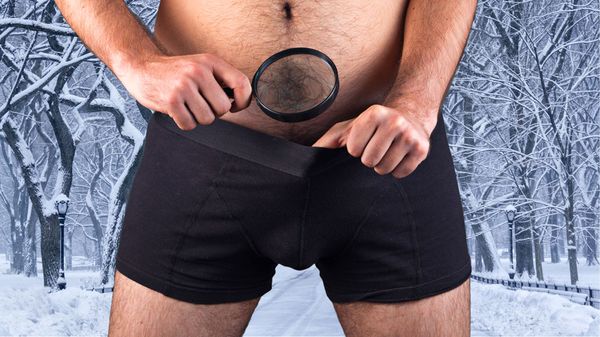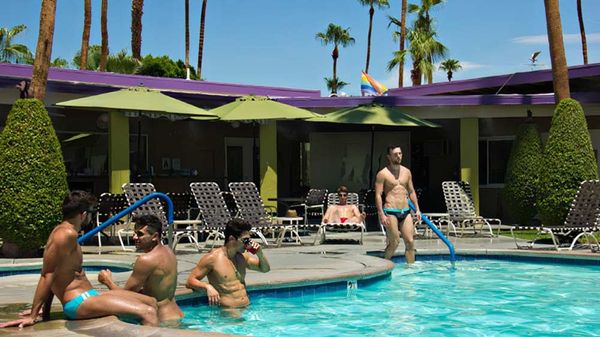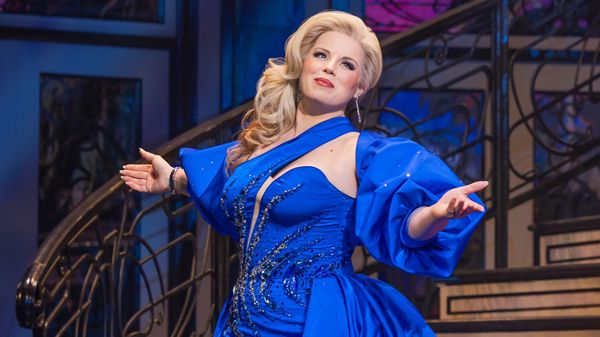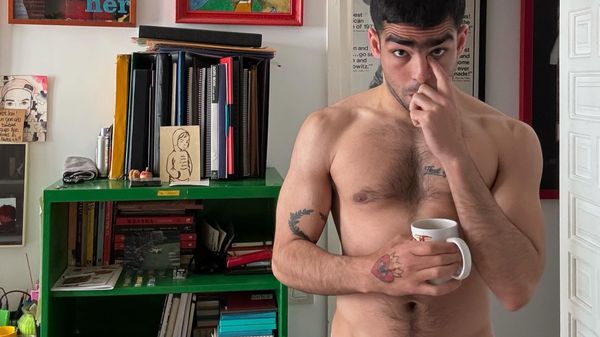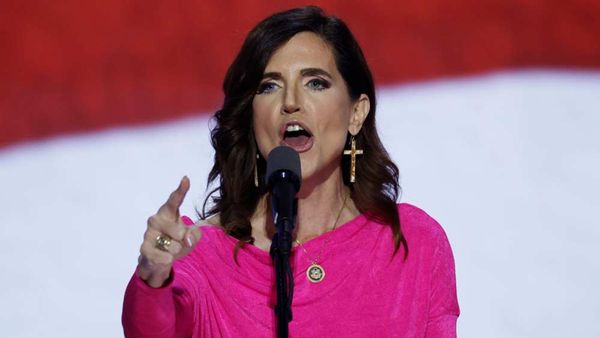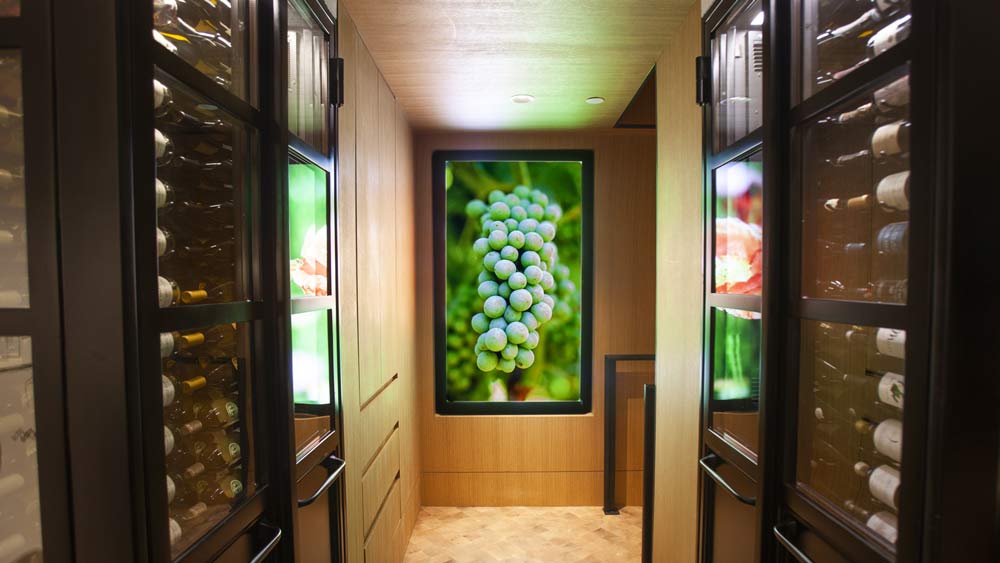
Oct 14
San Francisco History and the Future of Winemaking Meet at Gay Vintner Mark Lyon's Eco Terreno Urban Tasting Room
Jim Gladstone READ TIME: 7 MIN. SPONSORED
"As a young gay man in the late 1970s and early 1980s, I had a lot of wonderful experiences here in San Francisco," says Mark Lyon, a pioneer of organic farming and winemaking and the owner of Eco Terreno Vineyards.
He's sitting in his winery's unique tasting room, unexpectedly located in the city's historic North Beach neighborhood, over an hour from the Alexander Valley in Sonoma County, where Eco Terreno's grapes are grown and its wines made.
"There are so many tasting rooms up in wine country now that it's hard to stand out. I thought it would be nice to invest in something unusual here in a city that I've always cared about," Lyon continues.
"Having a tasting room in San Francisco, I can get these great wines in front of potential customers, whether they're locals or tourists, even if they don't have time to drive out to Sonoma."
With the tasting room's grand reopening scheduled for Oct. 18, oenophiles and casual wine drinkers alike can look forward to getting reacquainted with (or meet for the first time) Eco Terreno's selection of organically produced wines. Wines will be paired with curated small bites chosen to elevate the experience. Some of Eco Terreno's newest releases will be among the featured pours.
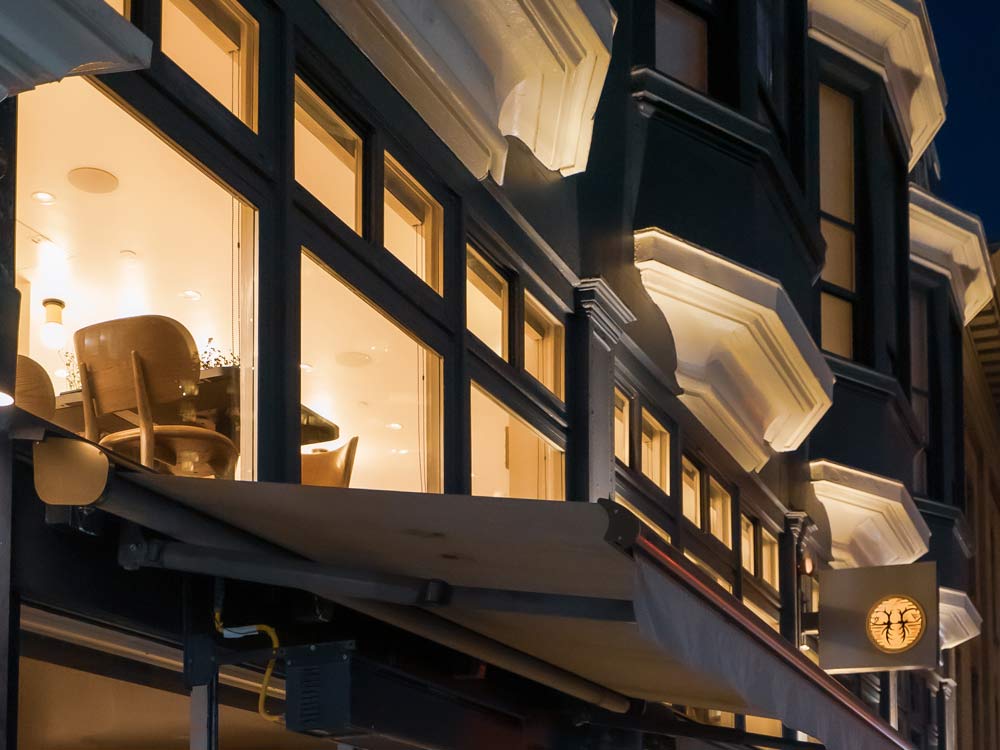
Source: Eco Terreno
A Building with Distinguished Terroir
During the Roaring Twenties, the Eco Terreno Urban Tasting Room's 140 Columbus Avenue address was home to Jupiter, one of the few clubs in the city where Black and white patrons were welcome to socialize together.
In the '30s, it was Mona's, one of the West Coast's first lesbian bars. And from the 1950s through 2012, the building housed The Purple Onion, a bohemian nightspot where the likes of Richard Pryor, Lenny Bruce, and Maya Angelou performed atop a tiny platform stage.
Here, in a building with its own rich past, Lyon is proudly raising a glass to his personal history and showcasing the future of California winemaking.
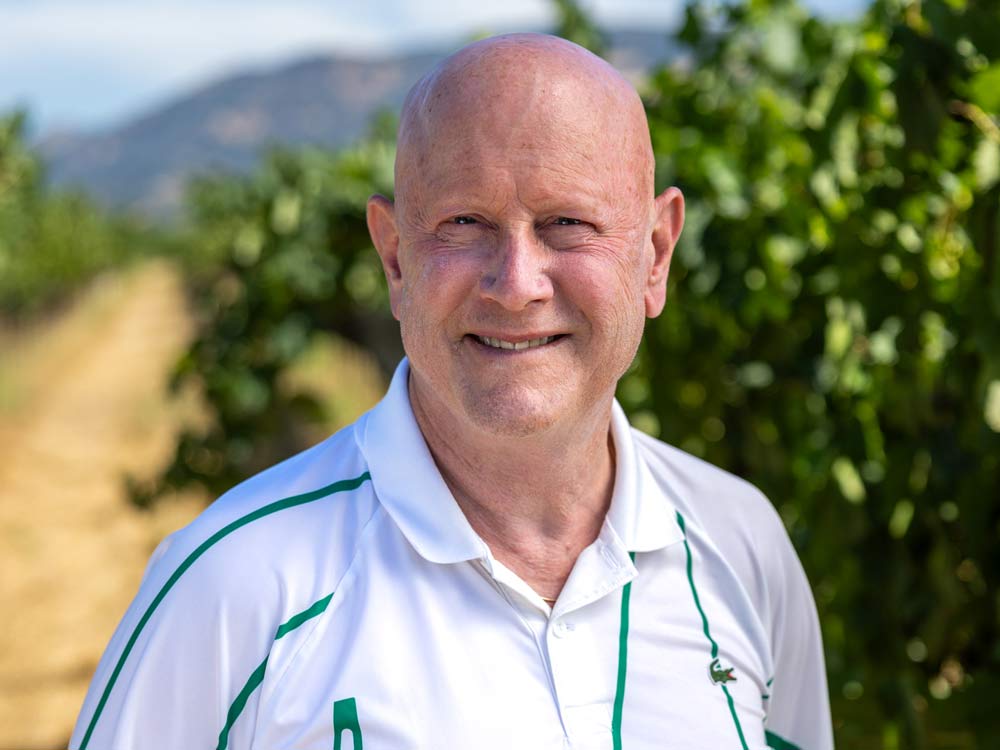
Inspired from His First Sips
When Mark Lyon was 16 years old, his grandparents took him on a life-changing summer vacation to Europe.
"They were more permissive than my mother and dear old Dad," he says, eyes twinkling at the mischievous memory.
"They let me drink wine, and I was like, 'Wow! This is big!'
"It made food taste so much better," Lyon goes on to recount. "The meatballs in Tuscany were incredible with a glass of Barolo, the fettucine at Alfredo's in Rome became even more magical with a Ruffino Chianti."
Lyon, who spent his teenage years in Arizona, credits that trip with igniting a lifelong passion for wine. For his high school senior project, he chose to study the soils of the Napa Valley.
A year later, setting aside earlier aspirations to become a pediatrician (Lyon's own childhood doctor was a role model and the first person he came out to), he went to study viticulture at the University of California in Davis, a storied launch pad for titans of the West Coast wine industry, including Robert Mondavi.
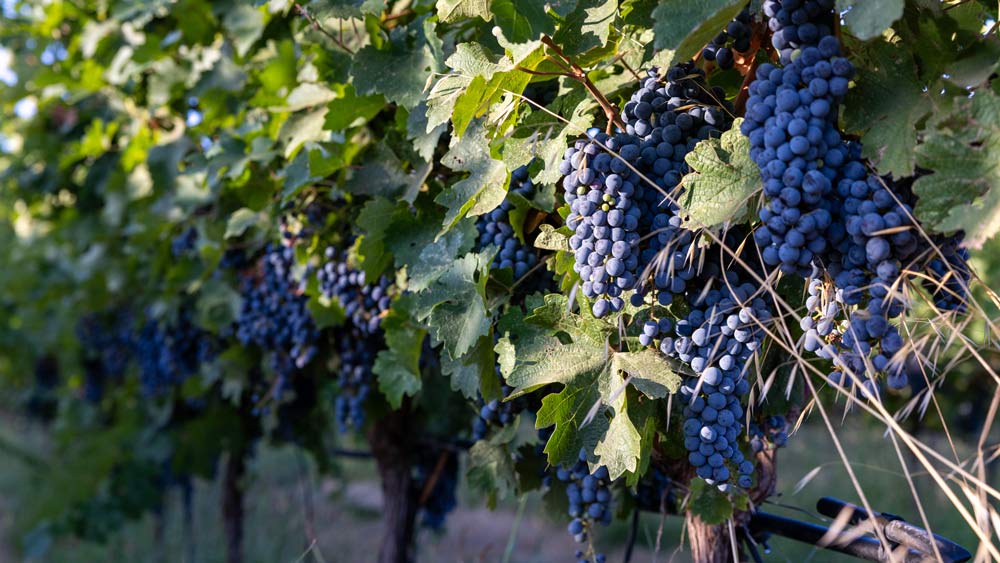
Winemaking Through an Uneasy Era
After graduating from Davis in 1980, Lyon took a sought-after position at Sonoma County's more-than-century-old Sebastiani Vineyards. Over the course of more than three decades, he rose to become the prestigious label's head winemaker, then moved on to establish Eco Terreno.
Through the same period, Lyon also became one of the most prominent gay men in the industry, supporting queer visibility as well as LGBTQ+ and AIDS charities in wine country and San Francisco.
But Lyon's earliest days in the industry came at a particularly challenging time.
"The reason I first chose Sonoma over the other northern California wine regions is that it was closer to San Francisco," Lyon recalls wistfully.
"I thought, 'Well, yes, I'm going to be living a more rural, agricultural way of life, but I want to have a social life, too. I don't want to be lonely, and the city is not too long a drive.'
"Still, in the back of my mind, I felt I had this destiny to make truly great wines," Lyon continues. "So maybe I didn't end up in the city as much as I might have otherwise.
"It may be lucky for me that I was so caught up in working to make the vineyard successful. Three or four men I was in love with got HIV or AIDS, and I was really traumatized. Those were scary times.
"It was a difficult time in wine the business, too," the winemaker adds. "I had to go a bit into hiding. There was a lot of ignorance back then about how HIV was transmitted. People wondered if you could get it from saliva, or from working with grapes that had been handled by gay men. There was a lot of homophobia and fear going on.
"I put my nose to the grindstone and became an ambitious workaholic through the 1980s and into the 90s."
Happily, by the time the 21st century rolled around, Lyon found enough free time to meet Daniel Cisneros, a fellow Sonoman. "We've been living together since 2003," he says with a smile. "And, thanks to Justice Anthony Kennedy, we were legally married in 2014."
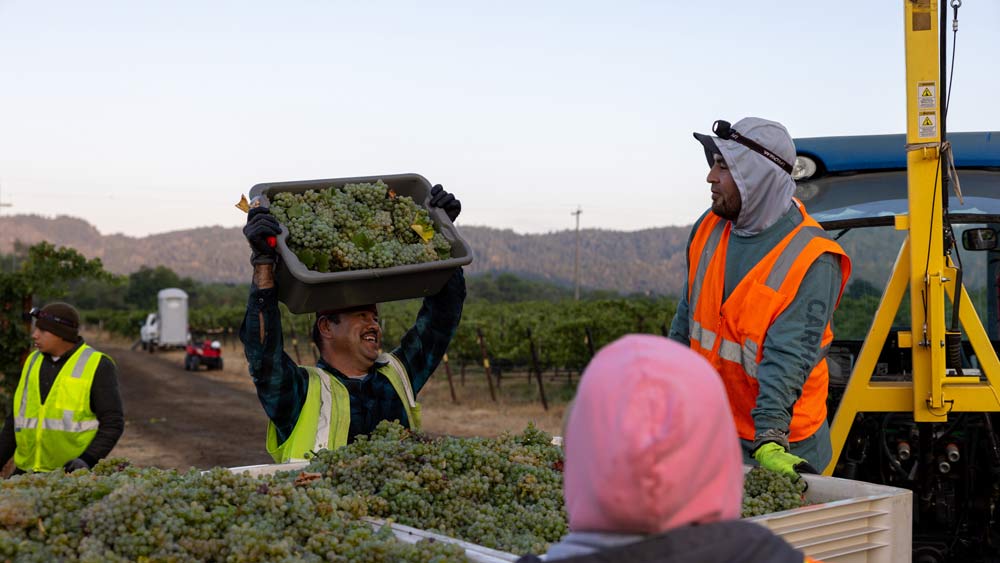
The Next Chapter
After retiring from Sebastiani in 2016, Lyon shifted his professional focus to a vineyard property he'd quietly cultivated on his own. For years he'd had a side business selling his crop to other wineries; now, with Eco Terreno – "ecology of the land" in Spanish – he would become a true estate vintner, overseeing the entire process and creating wines made exclusively from his own grapes.
"Early on," Lyon recalls, "I spent a good amount of time traveling in France, visiting wineries and talking to producers who I admired. Many of them had started converting their vineyards from conventional farming to organic and biodynamic.
"They're ahead of us in Europe; we're the late adapters. They're not doing it as a marketing angle; they're trying to bring more life into their soil, to bring a little more specific flavor and terroir into their wines.
"But the fact that they were doing this and still making fantastic wines made me more comfortable," Lyon adds. "I can't change the whole world, but I am an environmentalist, and I can change my world. So, I decided we would stop with herbicides and pesticides. We use compost and organic fertilizers, not chemical fertilizers."
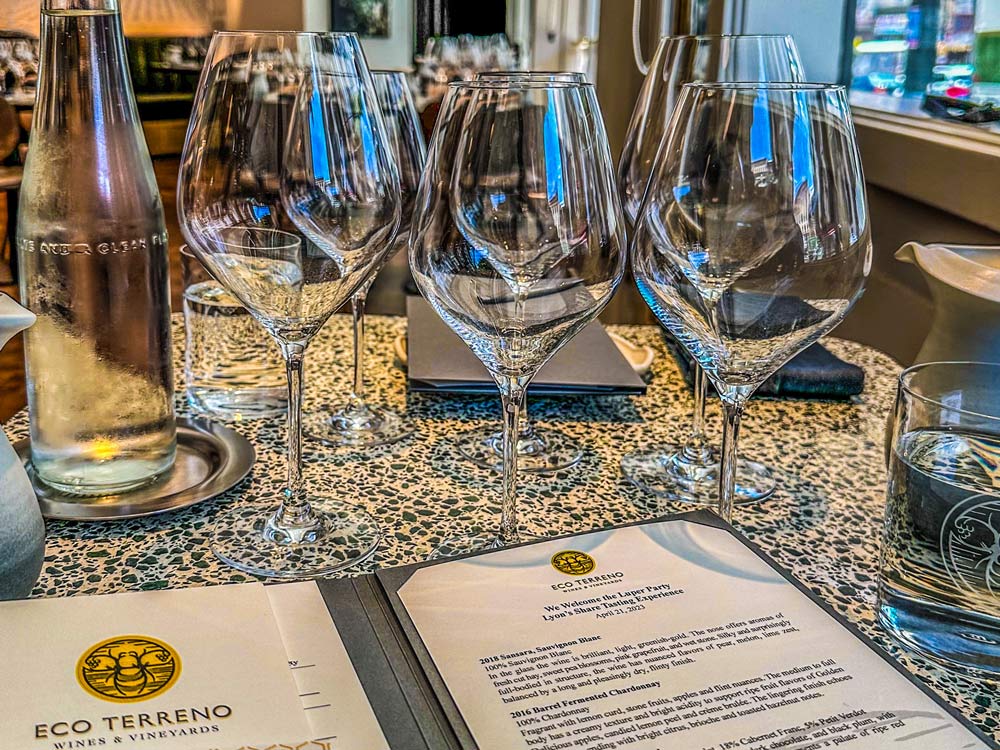
An Elegant Finish
"From 2014 to 2017, we made the conversion. This year marks our seventh organic, biodynamic harvest. This is probably the last big venture I'm going to take on in my life. It's something I feel good about."
That's not to say that environmentalism has become the sole good cause benefitting from Lyon's support. Among the wines he's making at Eco Terreno is a selection of accessibly priced blends he calls the Purpose Wine Collection, sales of which help underwrite programs supporting queer rights, social justice efforts, and education. The collection's 2022 Pink Pride Rosé won Gold in the San Francisco Chronicle wine competition.
"I'm happy to pursue niche marketing," says Lyon. "But you shouldn't come to the Eco Terreno tasting room just because you're an environmentalist or you're gay. You're going to discover some really great wine here."
The tasting room's grand reopening takes place Oct. 18 from 4 - 7 pm, with a special private tasting scheduled for 5 pm. Tickets and more information at this link.
Learn more, plan your visit, and purchase Eco Terreno wines at www.ecoterreno.com
Jim Gladstone is a San Francisco-based writer and creative strategist.

